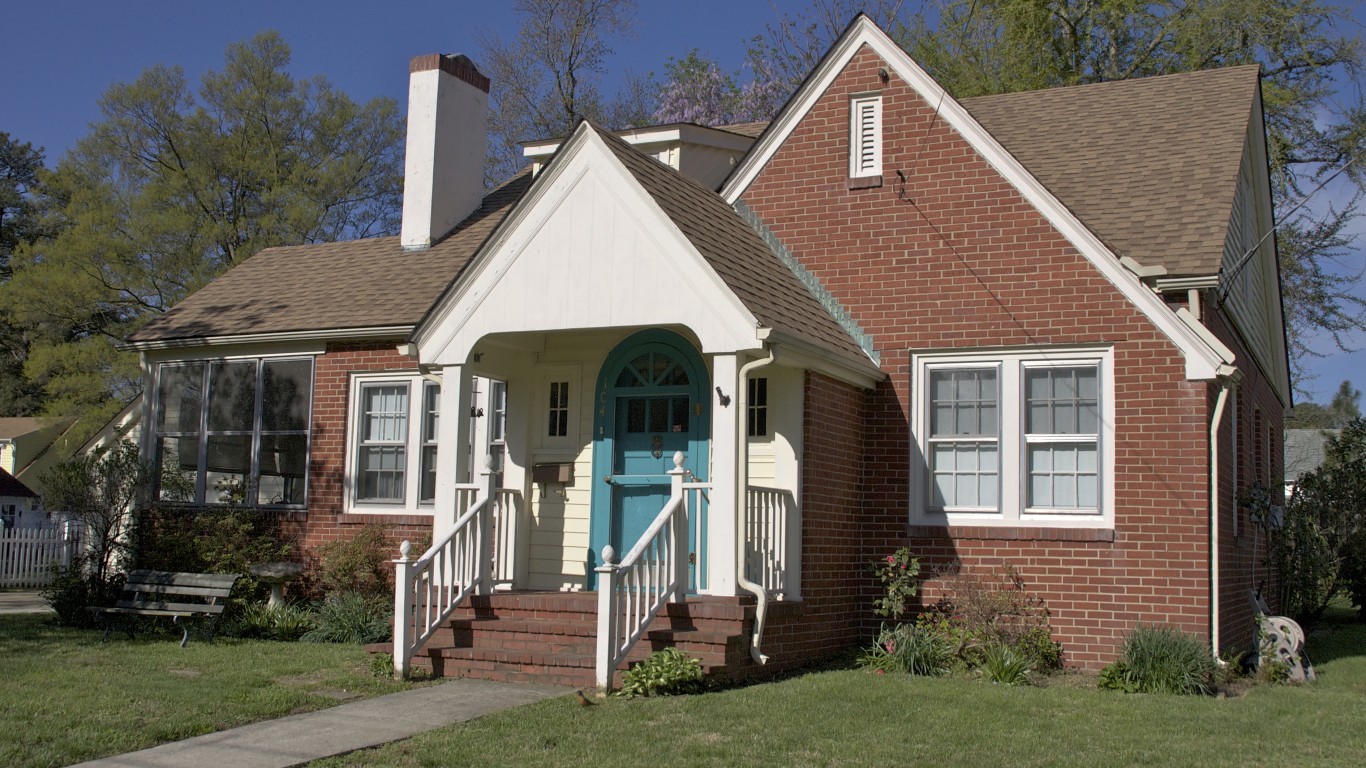
This post may contain links from our sponsors and affiliates, and Flywheel Publishing may receive
compensation for actions taken through them.
compensation for actions taken through them.
Living comfortably on Social Security alone in 2025 may seem challenging. I’d argue it’s an almost-impossible task in many markets, these days. The cost of essentials like housing, food and medical costs (whether today or at some point in the future) provide plenty of seniors with plenty to keep them up at night.
However, for those willing to make the right sacrifices and live within their means, almost anything is possible. Living off of Social Security (or another fixed income source) can become easier with retirement savings, and there are plenty of articles out there devoted to ideas of how to go about saving for retirement. In this article, I’m going to explore three tips I’ve come across I think strike a good balance of being both reasonable (most folks can take on these steps) and meaningful from getting one’s financial house in order.
So, without further ado, let’s dive in!
Key Points About This Article:
- Living comfortably off of social security in 2025 is a rather impressive feat, given where the cost of living currently stands and ever-rising medical costs.
- However, there are things retirees and those looking to retire can do to ensure as comfortable a retirement as they can hope for in the years to come.
- Smart Social Security planning can help you retire early. Talk to a professional today and learn more (Sponsor)
Downsizing Is Always An Option

While it’s human nature to always want the thing that’s bigger and better, there’s also some truth that simplifying one’s life, particularly as one’s living situation changes, can have some positive benefits for folks. Empty nesters, or those who have extra room they don’t need, have an advantage. Another family will likely gladly compensate those with the extra room at the market rate, and allow those with excess room to downsize to a smaller place for a fraction of the fixed living costs (utilities, etc.) and a smaller property tax bill.
For seniors thinking about downsizing, there are some obvious considerations to take into account. Those who like having plenty of folks over, or who have others who may rely on their residence for short-term (or longer-term) stays may not be able to think about this step.
But it’s also very true that housing costs represent a significant portion of most retirees’ budgets. That makes this line item a particularly important one to hone in on. Even for those who have paid off their homes (hopefully most retirees), there are living expenses one can’t go without tied to one’s home that can cause a major hole in one’s budget.
Moving to a condo or smaller living situation can provide significant reprieve, though every situation is different. Less upkeep, less headaches, and less property taxes and expenses can do wonders for many folks’ peace of mind in retirement. It’s something to think about at least.
Streamlining Expenses Is Increasingly Important

Creating efficiencies within one’s own household budget is generally always a good thing, and that’s true for folks in any age group. But for those looking to live their most comfortable lives in retirement, streamlining expenses (prioritizing necessary expenses and putting off those which may not deliver the same utility over time) can have even greater upside.
I’d argue that seniors have the most to gain from living off of a steady and stable budget each and every month. For those on fixed incomes, managing expenses becomes the most important item on the agenda – growing one’s monthly revenue becomes impossible on a fixed budget. So, carefully evaluating your budget and identifying priorities can prove not only fruitful, but satisfying. Finding creative ways to save without sacrificing your quality of life is key – we all gotta live a little, and I think this goes double for those in retirement.
Personally, my goal in retirement is to tackle at least one so-called “bucket list” item each year, and budget for that. I do think that living off of social security and finding a way to do one big event each year is possible, but requires planning. Thus, I’ll be consulting a financial planner for advice (and have already), and think this is a great step forward for those looking to take budgeting seriously. For those who haven’t done so, I can say from personal experience that it’s a great exercise, and one that typically results in gains far in excess of what one might spend on the initial cost of consultations.
Delay Claiming Social Security Benefits

The final aspect of managing one’s social security payments is deciding when one wants to start taking distributions. The advice I’ve seen proliferate online is that those who can afford to wait to take distributions may be best off doing so. Taking some part-time work or having another source of income while waiting to take distributions will be important – and those who can rely on retirement savings may want to do so while waiting, as delaying taking social security can be a big benefit for those in retirement, particularly over the long-term.
While individuals can begin receiving benefits as early as age 62, waiting until your full retirement age (or even better, age 70) can result in significantly larger monthly payments.
For every year you delay receiving benefits past your full retirement age, your monthly payment increases by approximately 8%. This boost can add up to a substantial difference over the course of your retirement. For example, if your full retirement age benefit is $1,500 per month, waiting until age 70 could increase it to roughly $1,860 per month. Over 20 years, that’s nearly $90,000 in additional income.
Delaying benefits isn’t feasible for everyone, especially if you’re dealing with health issues or limited savings. However, if you’re able to work longer, draw from other savings, or reduce expenses temporarily, the long-term financial advantages can be well worth it. Larger monthly payments provide more financial security, particularly as healthcare and other costs tend to rise with age.
Final Thoughts

Living comfortably off Social Security in 2025 requires a mix of smart financial decisions and lifestyle adjustments. It doesn’t have to be all doom and gloom with these decisions, and everyone’s situation is different. That’s why I always fall back on the advice I’ve seen (which I think is prudent) which is to consult a certified financial planner for advice on how to proceed and manage one’s finances in retirement.
That said, I think these three tips I’ve seen can benefit many who are planning to live on fixed budgets for the coming years. These are tips I’m planning on living by when the time comes, and hope this information was helpful.
It’s Your Money, Your Future—Own It (sponsor)
Are you ahead, or behind on retirement? For families with more than $500,000 saved for retirement, finding a financial advisor who puts your interest first can be the difference, and today it’s easier than ever. SmartAsset’s free tool matches you with up to three fiduciary financial advisors who serve your area in minutes. Each advisor has been carefully vetted and must act in your best interests. Start your search now.
If you’ve saved and built a substantial nest egg for you and your family, don’t delay; get started right here and help your retirement dreams become a retirement reality.
Thank you for reading! Have some feedback for us?
Contact the 24/7 Wall St. editorial team.




